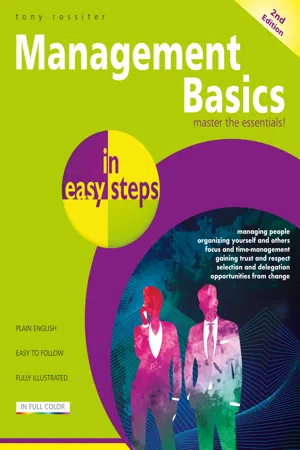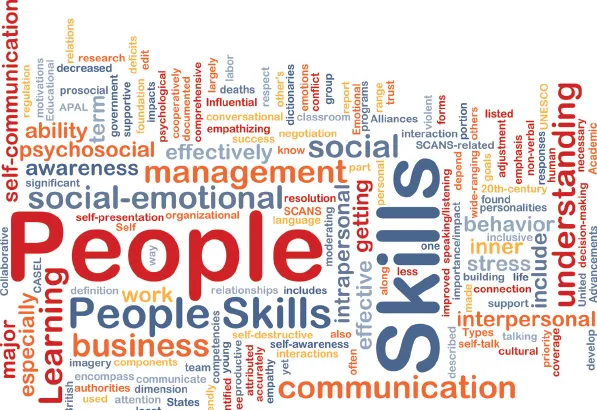
- English
- ePUB (mobile friendly)
- Available on iOS & Android
Management Basics in easy steps, 2nd Ed
About this book
Management Basics in easy steps, 2nd edition offers practical tips, information and common-sense advice based on the author's 40 years' hands-on experience of management – now updated to reflect advances in technology and changes in the wider working environment.
Whether you are an experienced manager or about to take up your first management job, Management Basics in easy steps, 2nd edition will be of real help to you in the workplace. It is a lively, easy-to-read book, full of tips and simple, practical things that have been put into practice in the real world and shown to work where it matters – in the workplace. Tony Rossiter's clear, humorous writing style and comprehensive content make Management Basics in easy steps, 2nd edition a compelling must-read for anyone with a management role. His management tips and advice will show you:
- How people skills help you put into practice all the technical skills needed by a manager
- How to manage your staff, your colleagues, your customers and even your boss
- How to organise yourself and make the most effective use of your time
- How to focus on the vital 20% of your work that accounts for most of the results
- How to win the respect and trust of your team and make it the best
- How to select the right person to join your team
- The art of effective delegation
- How to make effective use of digital tools, online networks and social media
- How to cope with change and see it not as a threat but as a great opportunity
This second edition has been revised to include the changes in management practices since the first edition, which was published in 2011, including:
- The increased importance and use of digital tools, business and performance management software, and social networks (e.g. LinkedIn, Slack, Yammer, Scoro, Twitter, Facebook)
- Increased focus on diversity and inclusion
- Implications of new data protection legislation
- Less tolerance of unacceptable workplace behaviour such as bullying and sexual harassment
- More recognition of the importance of the culture of an organisation
- A move away from traditional, command-and-control hierarchies towards more flexible working – working from home, better work/life balance, teamwork, collaboration, matrix structures, trusting and empowering those at the coal-face
- A move away from fixed appraisal systems and formal training towards continuous feedback, coaching and personal learning (e-learning, distance learning)
- More refined recruitment (use of LinkedIn etc)
Comes with useful worksheets – a complete guide for easy reference.
Information





Table of contents
- Cover
- Title
- Copyright
- Contents
- 1 Managing People
- 2 Managing Time
- 3 Managing Presentations
- 4 Managing Meetings
- 5 Managing Projects
- 6 Managing Communication
- 7 Managing Teams
- 8 Managing Negotiations
- 9 Managing Decisions
- 10 Managing Change
- 11 Managing Delegation
- 12 Managing Recruitment Interviews
- + Resources
- Back Cover
Frequently asked questions
- Essential is ideal for learners and professionals who enjoy exploring a wide range of subjects. Access the Essential Library with 800,000+ trusted titles and best-sellers across business, personal growth, and the humanities. Includes unlimited reading time and Standard Read Aloud voice.
- Complete: Perfect for advanced learners and researchers needing full, unrestricted access. Unlock 1.4M+ books across hundreds of subjects, including academic and specialized titles. The Complete Plan also includes advanced features like Premium Read Aloud and Research Assistant.
Please note we cannot support devices running on iOS 13 and Android 7 or earlier. Learn more about using the app